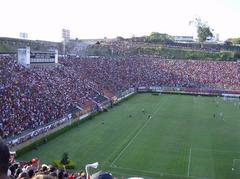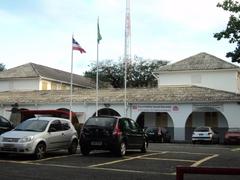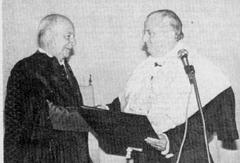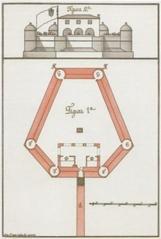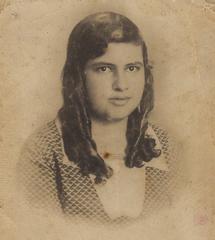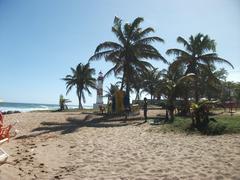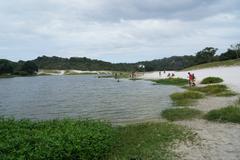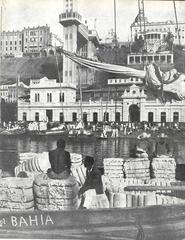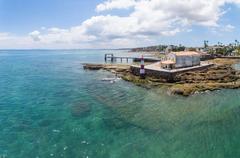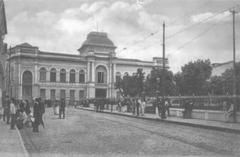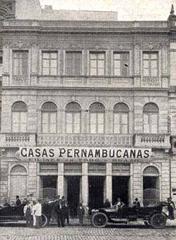Largo Tereza Batista: Visiting Hours, Tickets, and Comprehensive Guide to Salvador’s Historical Sites
Date: 14/06/2025
Introduction
Largo Tereza Batista is a vibrant cultural square at the heart of Salvador’s historic Pelourinho district—a UNESCO World Heritage Site renowned for its Afro-Brazilian heritage and colonial past. Named after the resilient protagonist from Jorge Amado’s acclaimed novel, this square is a living canvas of Salvador’s rich traditions, artistic innovation, and community activism. Whether you’re a history enthusiast, music lover, or cultural explorer, Largo Tereza Batista offers an immersive experience through its events, architecture, and the spirit of Salvador’s people (doinbrazil.com, salvadordabahia.com, jornalgrandebahia.com.br).
Table of Contents
- Introduction
- Historical and Cultural Background
- Visiting Hours and Ticket Information
- Accessibility and Practical Tips
- Nearby Attractions
- Events, Festivals, and Performances
- Cultural Etiquette and Responsible Tourism
- Visitor Amenities and Safety
- Frequently Asked Questions (FAQ)
- Conclusion and Recommendations
- References
Historical and Cultural Background
Origins and Significance
Largo Tereza Batista is located in Pelourinho, Salvador’s historic center developed in the 16th century. The square honors Tereza Batista, a literary symbol of female strength and resistance, reflecting the region’s tradition of blending storytelling, history, and public space. Pelourinho itself once represented the harsh realities of colonial rule but has transformed into a dynamic hub of Afro-Brazilian culture through community-led revitalization and government support (doinbrazil.com).
Afro-Brazilian Identity
Known as the “Black Rome” due to Salvador’s significant Afro-descendant population, Largo Tereza Batista is central to expressions of African heritage. The square is alive with samba-reggae, capoeira rodas, and Candomblé ceremonies, serving as a platform for cultural affirmation, social justice, and creative resilience. Groups such as Olodum and Bloco Afro Muzenza regularly rehearse and perform here, reinforcing its status as a beacon of contemporary Afro-Brazilian art and activism.
Visiting Hours and Ticket Information
- Public Access: Largo Tereza Batista is an open public square accessible 24 hours a day.
- Best Visiting Times: For safety and to experience cultural events, visit between 10:00 AM and 10:00 PM.
- Tickets: Entry to the square is free. Some special events, workshops, or performances may require advance tickets, which can be purchased on-site or via official event pages.
- Guided Tours: Numerous local operators offer guided walking tours that provide rich historical and cultural context, often including behind-the-scenes access to music and dance rehearsals.
Accessibility and Practical Tips
- Mobility: The square is flat and open, but surrounding cobblestone streets may be challenging for those with limited mobility. Temporary ramps and accessible viewing areas are provided during major events.
- Getting There: Conveniently located in Pelourinho, Largo Tereza Batista is within walking distance of many landmarks and is easily reachable by bus, taxi, or rideshare.
- Travel Tips:
- Dress for the tropical climate with light, breathable clothing.
- Wear comfortable shoes suitable for cobblestones.
- Carry cash for street vendors and tips.
- Visit during Carnival or São João festivals for a heightened cultural experience.
Nearby Attractions
Explore these notable sites within walking distance:
- Fundação Casa de Jorge Amado: Literary museum dedicated to one of Brazil’s most famous novelists.
- Museu Afro-Brasileiro (MAFRO): Showcasing Afro-Brazilian art and heritage.
- Elevador Lacerda: Historic elevator offering panoramic views of the Bay of All Saints.
- Mercado Modelo: Bustling market known for crafts and local cuisine.
- Largo Pedro Arcanjo & Largo Quincas Berro D’Água: Squares famous for live music and community events.
- Igreja e Convento de São Francisco: Renowned for its ornate, gold-leaf interiors.
Detailed visiting hours and ticket information for each attraction are available on the Salvador tourism website.
Events, Festivals, and Performances
Annual Highlights
- Carnival: During Salvador’s world-famous Carnival, Largo Tereza Batista becomes a stage for free concerts, dance performances, and cultural showcases. In 2025, the square was a central venue for celebrating 40 years of Axé Music (bahia.ba).
- São João Festival: Salvador’s June festivities feature forró music, dance, and traditional food, with Largo Tereza Batista hosting performances and themed events (salvadordabahia.com).
- Weekly Cultural Programming: Capoeira rodas, samba nights, LGBTQ+ celebrations, and thematic concerts are regularly held, often free and open to all (jornalgrandebahia.com.br).
Notable Performers
Artists and groups such as Lazzo Matumbi, Márcia Short, Carla Visi, Capoeira Filhos de Bimba, and Samba do Vai Kem Ké frequently grace the stage, enriching the square’s cultural fabric.
Cultural Etiquette and Responsible Tourism
Social Interactions and Dress
- Greetings: Expect warm greetings and physical contact such as hugs or cheek kisses. A handshake is also acceptable (Caminhos Languages).
- Dress Code: Light, casual wear is standard, but modest attire is recommended for religious sites. Personal hygiene is important in local culture.
Dining and Communication
- Dining Etiquette: When invited to local homes, bring a small gift and arrive fashionably late (about 20 minutes). Tipping is optional, as a 10% service charge is typically included in restaurant bills.
- Language: Portuguese is the primary language. Basic Portuguese phrases are appreciated; avoid using Spanish with locals.
Respecting Traditions
Largo Tereza Batista is a focal point for Afro-Brazilian music and religious traditions. Engage respectfully, ask before taking photos during ceremonies, and approach cultural performances as a learner.
Sustainable Tourism
- Support Local Businesses: Dine at family-run restaurants, buy crafts from artisans, and attend community-led events (World History Journal).
- Environmental Care: Use reusable bottles and bags, dispose of trash properly, and choose eco-friendly accommodations.
- Cultural Respect: Do not touch or climb on historic structures and always follow posted guidelines.
Visitor Amenities and Safety
- Restrooms: Public facilities are available in main squares and museums. During large events, portable toilets are provided.
- Food and Drink: Street vendors offer Bahian specialties like acarajé, cocadas, and tropical juices.
- Shopping: Artisan markets and souvenir shops operate daily.
- Wi-Fi and ATMs: Available at many cafés and cultural centers.
- Safety: The area is generally safe by day and early evening; use caution at night, keep valuables secure, and stick to well-lit areas.
Frequently Asked Questions (FAQ)
Q: What are the visiting hours of Largo Tereza Batista?
A: The square is open 24/7, but the best hours for events and safety are 10:00 AM–10:00 PM.
Q: Is there an entrance fee?
A: No, entry is free; some special events may require tickets.
Q: Are guided tours available?
A: Yes, daily tours can be booked online or at local kiosks.
Q: Is the square accessible for people with disabilities?
A: The main area is flat and accessible, but nearby cobblestones and steps may require caution. Temporary ramps are provided for major events.
Q: What should I wear?
A: Light, casual clothing is suitable for the climate; modest attire is recommended for religious sites.
Q: What are nearby attractions?
A: Visitors can explore Fundação Casa de Jorge Amado, Museu Afro-Brasileiro, Elevador Lacerda, Mercado Modelo, and more.
Conclusion and Recommendations
Largo Tereza Batista stands as a living symbol of Salvador’s Afro-Brazilian identity, creativity, and resilience. Its year-round events, welcoming community, and proximity to historic sites make it a must-visit for travelers seeking an authentic Bahian experience. To maximize your visit:
- Plan around major festivals for the most dynamic atmosphere.
- Join a guided walking tour for historical and cultural insights.
- Support local artisans and performers.
- Practice respectful and sustainable tourism.
Stay updated on events and cultural programming by downloading the Audiala app and following official Salvador tourism channels.
References
- doinbrazil.com
- jornalgrandebahia.com.br
- salvadordabahia.com
- caminhoslanguages.com
- bahia.ba
- agenciasertao.com
- World History Journal


